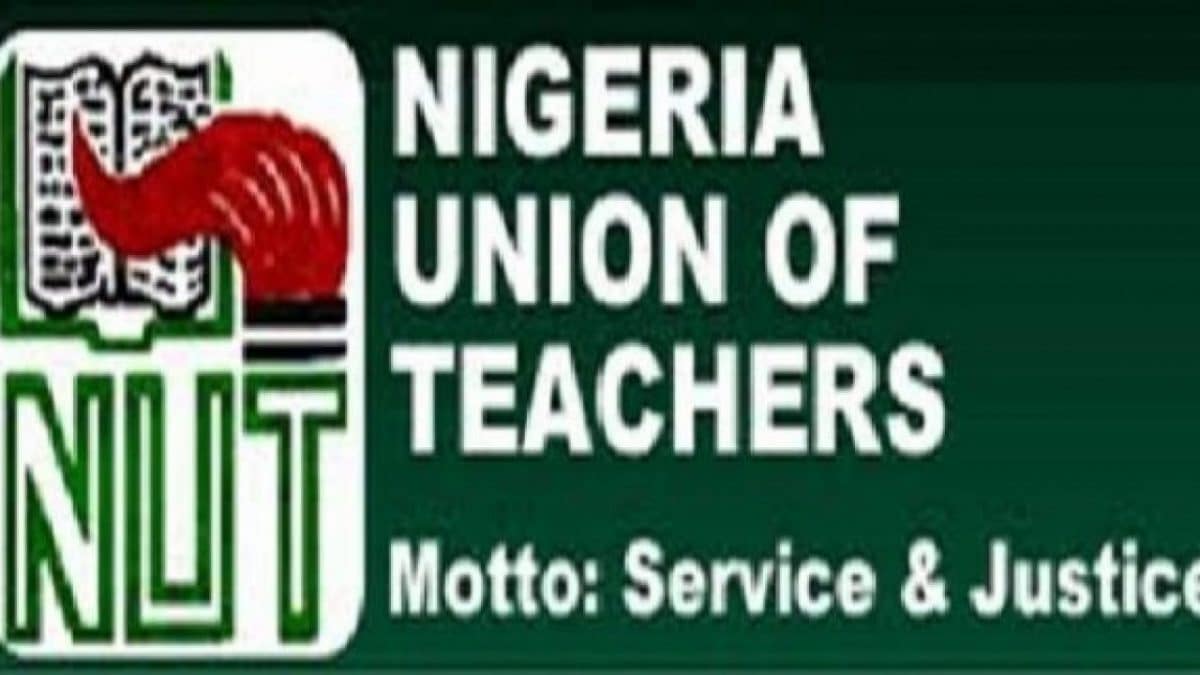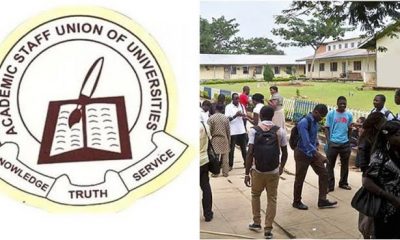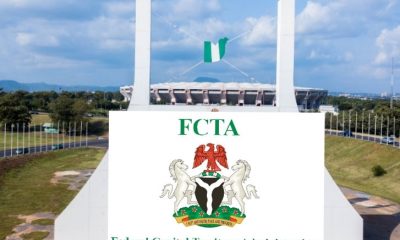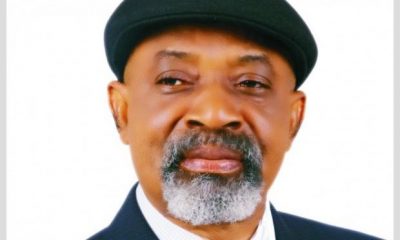Education
ASUU is the Problem of Education in Nigeria

By Godspower Ekuobase
This piece about academics in Nigeria may offend the arrogance of the Academic Staff Union of Universities (ASUU) if ASUU is repressive or it will excite ASUU’s patriotism to bootstrap the Nigerian Academics to his pride of place in the global league of universal institutions called universities.
I write this piece to expose, as an insider, the realities of Academics in Nigeria towards rescuing the Federal Government of Nigeria (FGN) from the asphyxiation of ASUU and redirect ASUU to the path of patriotism.
The truth is that like Saul who later became Paul, ASUU has ignorantly become the enemy of the Nigerian State.
Why and How? You may ask! Permit me begin with the answer to “the why”. ASUU pride herself as being the most educated, knowledgeable and intelligent set of Nigerians. This, obviously, is not true. I assert that education is not certification, knowledge is not qualification and intelligence is natural, it is not grammar. Even the grammar, we do not write or speak it better than others.ASUU should be humble enough to accept that we are not paid for certificates acquired, but we are paid to do our job of teaching, impactful research and community services within and outside the university with utmost professionalism and integrity and without fear or favour. If we say the truth, every Nigerian graduate has one or more lecturers that taught him/her that he/she wondered, and is still wondering, how the lecturer got thus far, even to the peak. I mean Professors! Maybe I am one of those lecturers, but it is high time we said the truth. Besides, many of the excellent students could not come into academics because we are guilty of what we accuse FGN – nepotism and tribalism!
ASUU may say they are not responsible for promotion or employment in any university. Who then does? ASUU members of course! Vice Chancellors, Deans, Heads of Departments and Professors are not military officers, APC or PDP members but ASUU members. ASUU is only interested in collecting dues with no mechanism in place to maintain the integrity and progression of Academics in Nigeria. It is important Nigerians know that FGN does not interfere in the appointment and promotion of Academic staff in any university. ASUU should drop this pride and let us move Nigeria forward.
The second reason why ASUU ignorantly persecutes Nigerians is that they are lost in ecstasy against the Nigerian state. They have abdicated their role of clamouring for members’ welfare and have constituted themselves into a quasi-political party and self-made opposition to any government in power. Most Nigerians who are either polygamous or from polygamous home, will agree that the wife that antagonises her husband the most, get the least from her husband no matter how good or rich the man is.
Permanent Secretaries or Judges earn more than a Professor they will tell us and get us drunk with the wine of pride, adducing these categories of workers enjoy what they enjoy because they are puppets to politicians or government in power; and that ASUU will not falter its integrity and will remain the voice of the downtrodden.
Enough of this hypocrisy! At least in recent times, ASUU decides who rules this country and it is only when there are disputes, the judiciary arbitrate. When many staunch ASUU supporters discuss how they went about conniving with politicians of varying political parties to get them or their cronies installed in power, you will weep for this country.
Politicians in Nigeria, particularly, in recent times will sincerely accept in their heart of hearts that Lecturers have lost the integrity or love they profess they have for Nigerians as against the politicians or other public office holders. Is it not some of us that connive with some students to have unmerited qualifications they use to occupy these public offices? Why accuse who your members aided to power of incompetence or misrule? ASUU is a case of the pot calling the kettle black.
ASUU like most trade unions should concentrate their energy on their members’ welfare – they should always come out straight with their welfare demands instead of their holier and richer than thou posture. We should be humble to say the truth, our salary is not enough not because we are better than other Nigerian workers or earn less but because of the nature of our job – even if we have all the comforts and tools to do research, we spend a fortune to get them published.
On the average, a Lecturer will require thirty to forty publications with about 1/3rd of them published with foreign currency, to be a Professor. To say the truth, a dedicated Lecturer with high integrity, which most of us are, is poor. With sustained support for any government in power, in our capacity as academics, the cooperation of other trade unions, and logical persuasions, we will get something from the government. Something is better than nothing! Do not judge us based on our packaging. We are suffering but smiling! Instead of ASUU to consistently market this truth, they have worsened the poverty of Nigerian academics by avoiding it; claiming that the Nigerian Universities are poorly equipped and citing autonomy and other smoky issues.
For the smoky issues, I will show later that ASUU is the problem and they know too. Nigerian Students! Poor salary is our problem and the genuine cause of our anger and persistent strike; not any acclaimed love for you. If we love you as claimed, why do we suspend most strikes after financial settlement from FGN. Some University Academics extort students financially and sexually and yet we claim we love the students and that we are fighting their course. What has ASUU done as a union to protect innocent students from this oppression. Absolutely Nothing! What a hypocrisy!!
Still on ASUU’s “Nollywood” love for Nigerians, is it in the interest of Nigerians, that ASUU proposed and accepted 70years retirement age for the professorial cadre? NO! It was because the Judges were given 70years. Even after 70years, some ASUU members still want to stay on contract in FGN payroll while they receive gratuity and pension. The youths have no job, the old do not want to retire and yet they claim they love Nigerians.
ASUU should explain to Nigerians why a Lecturer that became an Associate Professor at the verge of 65years should be given extra five years in service. Somebody should help me tell ASUU that it is even in our culture as Africans to have the most elderly ones among us settle our disputes. Besides, rules and discretion are two desiderata deployed in legal practice. Discretion made law an axe that requires the very experienced because of the possible intrigues of lawyers. I assert that no other human task can be as an axe as law. Greed blinded ASUU, they forgot we have other legal means of income as Part-time teaching, external examination and assessment, an Adjunct lecturer position in another University, royalties, market for our books as in most tertiary institutions, opportunity for political office outside our place of work while in service which the Judges may not have.
Legally, Judges are not allowed to romance with any political party or its members. We all saw what happened recently with one of our finest Judges in the court of Appeal because her husband has affiliation with a political party. She had to withdraw from a case in the interest of the country. Before you call me APC puppet, I did not vote for APC in both the 2015 and 2019 presidential elections, but I wholeheartedly accepted the position of the majority and the wisdom of the Judiciary.
Before I digress, this singular act of envy by ASUU that claim to “love” Nigerians has contributed greatly to youth unemployment in civil service as other union began to also request for additional five years in service.
Why Nigerian civil servants were on strike for addition of five years to their retirement age, a European nation with longer life-expectancy and lower youth unemployment went on strike to reverse their retirement age that was increased by a year. I have so far exposed my conviction on why ASUU has become an enemy of the Nigerian state. The reasons are pride, greed, and lack of instrument to enforce integrity and professionalism among its members.
This lack of instrument may draw pity to ASUU as a crippled toothless tiger before its members. ASUU however relies on two unholy but potent instruments of control – propaganda and intimidation, to satisfy its pride and greed. ASUU coarse its members and their families with fear – fear of career progression and academic opportunities irrespective of their capabilities.
The truth is that majority of the Lecturers in Nigerian Universities are sick and tired of the incessant strike by ASUU and the lack of innovative means of engaging government; as evident by the about 55% of its members who stood with the FGN on the deployment of IPPIS despite ASUU’s intimidation.
Some notable Professors or politically aspiring Lecturers had to hide to register with IPPIS to evade the fury of ASUU. ASUU cannot love us more than us!
The UNIBEN branch of ASUU robbed me and others that subscribed to IPPIS of our Christmas rice which we contributed towards and threatened us with queries; but I trashed mine. I was insulted and promised that ASUU will work against me if I should contest or vie for position in any University. Do not fear for me! I have never and will never fear any cult. The finality of man is death and death by truth is holy and paradise assured.
If ASUU is truly democratic, they are supposed to bow to the voice of the majority. The truth on the IPPIS issue is, you may not like Buhari or the APC lead FGN, IPPIS is a holy ICT innovation capable of effectively preventing corruption, without a fight, on our national payroll. Globally, preventive means of checking corruption is cheaper and greener than the curative means of fighting corruption. No doubt, as with all ICT innovations and deployments, there are bound to be teething problems which do wear away with time. IPPIS provides the long-awaited opportunity for ASUU to exercise their academic autonomy and bootstrap Nigerian Universities to its pride of place. I wish to let Nigerians know that all ASUU is saying about IPPIS is pure propaganda against FGN.
I challenge ASUU to an open debate on IPPIS. Let us examine the smoky issues of funding, infrastructural decay and autonomy that ASUU has consistently used to blackmail FGN and woo the sympathy of Nigerians. It is important to note that the National University Commission (NUC) is an instrument of FGN to ensure Nigerian Universities meet up with global standards. NUC is doing an excellent job to guarantee high standard university education for Nigerians and foreigners alike.
The resource verification and the regular accreditation instruments and implementation procedures are second to none in the globe. I affirm that NUC make use of ASUU members to perform virtually all their task of maintaining standards in the Nigerian Universities. Oh! I may be accused of NUC sponsorship. My apologies, NUC.
I pity FGN, ASUU will recommend to FGN through NUC that all is well and, in most cases, excellent and the same ASUU is fighting FGN through the Presidency and Labour ministry that everything is in total collapse. Who then is the problem, FGN or ASUU?
Have we heard ASUU complained to NUC about resource verification or accreditation instruments or exercises? No! Does NUC (FGN) report and enforce ASUU’s findings and recommendations on which university or its programme should be sustained? Yes! Who made strike part of our university calendar? ASUU! Who prepares the university for accreditation or resource verification? ASUU! Who are the phoney resource persons particularly in private universities? ASUU! Who does accreditation or resource verification? ASUU! Who affirms that our universities and its programmes are particularly in good form? ASUU! Who awards the degrees? ASUU! Who is saying our university system is dilapidated and substandard? ASUU! My Nigerian universities, your midwife has become your murderer, prosecutor, advocate and judge. ASUU why? Who therefore is the clog in the wheel of progress of Academics in Nigeria?
The Way Forward:
(i) ASUU should apologise to FGN and Nigerians for negligence, misdirection, and disruption of university calendar at least in the last two to three decades; and put a final stop to the incessant strikes in the public universities in Nigeria.
(ii) ASUU should accept that other public or civil servants are equally important.
(iii) ASUU should come out straight with their unique welfare nature; with respect for constituted authorities as enshrined in our holy books.
(iv) ASUU should henceforth, “call a spade, a spade” and do their job with fairness, professionalism and integrity without any fear or favour.
(v) ASUU should device ethical means of enforcing professionalism, integrity and standards in Nigerian Academics commensurate with global norm. It is hoped that this divine ambush on ASUU on his way to “Damascus” will redirect ASUU’s focus from its misplaced intention to a genuine course of Nation building and promotion of Academics in Nigeria. This piece is my opinion and not that of my university or professional bodies.
Prof. Godspower Ekuobase, PhD, MCPN. Professor of Services Computing Department of Computer Science University of Benin, Benin City Edo State, Nigeria Email: godspower.ekuobase@uniben.edu Tel.: +234(0) 8064951845
Education
UNICAL VC Promises to Resolve Dentistry Students’ Crisis

From Ene Asuquo, Calabar
The Vice Chancellor of the University of Calabar, Prof. Florence Obi has promised that she would do everything humanly possible to ensure that the ongoing crisis in the institution’s Department of Dentistry, is resolved.
Prof.
Obi made the promise in Calabar during a press briefing, stressing that she will resolve the crisis before leaving office.She explained that the problem predates her administration, and pledged to intensify efforts to rectify the crisis.
She added that the crisis was as a result of the Medical and Dental Council of Nigeria (MDCN)’s refusal to induct 2016 Dentistry students of the institution.She also debunked claims circulating on social media that the institution’s Dentistry programme has lost its accreditation, describing the reports as “misinformation and distortion of facts,” clarifying that the programme remains fully accredited and no students have been directed to transfer to other universities.
“At no point did the University ask Dentistry students to seek transfers to other institutions, nor were they advised to ‘go and learn a trade’ as falsely alleged online,” the VC stated.
“I will feel very bad if I leave without solving this problem and the students are left hanging without knowing their fate. I won’t be fulfilled,” she said.
She reaffirmed the University’s commitment to ensuring all Dentistry students graduate and are duly licensed as dental surgeons.
She noted that the Dentistry programme commenced in the 2013/2014 academic session, and in November 2019, the University secured pre-clinical accreditation from the MDCN and full clinical accreditation was subsequently granted in December 2022.
The VC added that the university’s synergy and partnership with the Minister of Education and the Tertiary Education Trust Fund (TETFund) to upgrade its facilities.
“All we asked for is time to engage with other institutions, update the Medical and Dental Council of Nigeria (MDCN), and follow through on due processes,” she noted.
Speaking further, Obi said that some of the affected students demanded to be transferred to the Department of Medicine and Surgery but said it was not the solution as the department was already saturated.
She urged the affected students to remain calm, noting that the university was doing everything possible to resolve the issues before the end of her tenure.
Education
NUT Reaffirms Commitment to Teachers’ Professional Development in Kwara

From Abdullahi Abubakar, Ilorin
The Nigeria Union of Teachers (NUT), Kwara State Wing has restated its commitment to strengthening the professional growth of teachers across the State, to enhance the quality of education delivered in public schools. Speaking at the opening of a three-day capacity-building workshop in Ilorin, the State Chairman of the Union, Comrade Yusuf Wahab Agboola, noted that continuous training of teachers remains a vital component of educational reform and improved classroom delivery.
The training, organised in collaboration with the NUT National Secretariat, is targeted at selected teachers and focuses on the “Study Circle Conveners’ Model”—a grassroots strategy for enhancing peer-to-peer learning and participatory leadership within the education sector.
Comrade Agboola explained that the workshop aims to equip teachers with practical skills in collaborative learning, peer engagement, and innovative teaching practices. He expressed optimism that the training would promote professional bonding among teachers and foster collective solutions to challenges facing the education sector.Also speaking at the event, the National Coordinator of the NUT Study Circle Project, Comrade Solomon Igbelowowa, traced the initiative’s roots to 1985 when it was introduced in Nigeria by the Swedish Teachers Association, having recorded success in Sweden and other parts of the world. He commended the Nigerian Union of Teachers for sustaining the project over the years and urged participants to engage fully and make the most of the training opportunity.
The workshop was officially declared open by the National President of the NUT, Audu Amba, who was represented by the 3rd National Vice President, Bashir Oyewo.
He encouraged teachers to approach the sessions with dedication and punctuality.
Education
JAMB Sets 150 Cut-off Mark for University Admissions

By Tony Obiechina Abuja
The Joint Admissions and Matriculation Board (JAMB) has fixed 150 as the minimum cut-off mark for admission into Nigerian universities for the 2025/2026 academic session.
The decision was reached on Tuesday during the 2025 Policy Meeting on Admissions, held at the Bola Ahmed Tinubu International Conference Centre in Abuja, with stakeholders from various tertiary institutions in attendance.
According to JAMB, 140 was approved as the minimum score for colleges of nursing sciences, while polytechnics, colleges of education, and colleges of agriculture will admit candidates with a minimum score of 100.
“The minimum admissible scores for admissions for the next academic session have been fixed at 150 for universities, 100 for polytechnics, 100 for colleges of education, and 140 for colleges of nursing sciences by the stakeholders (Heads of Tertiary Institutions),” JAMB announced via its official X account.

























